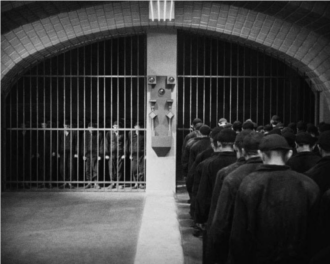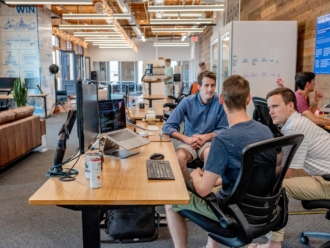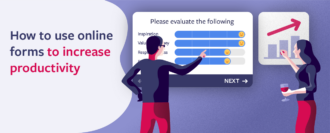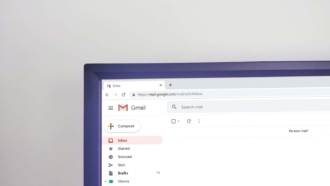Increased focus and function. Better sleep. Brighter mood. Quicker learning. Deeper creativity and a sharper memory.
These aren’t the effects of a wonder drug. They’re the natural results of a week spent picking olives with my family in Turkey.
It’s a commitment I never miss — where I trade in targets for tarps, and productivity for brining pans. I count vats of oil, instead of KPIs. I look at trees, instead of spreadsheets. I chase my children, instead of timelines.
At first glance, olive picking has nothing to do with my online form startup. But, studies show that taking time for a hobby may actually be the key to increased creativity, productivity, memory, focus, and mood.

Doing something purposeful that we love, outside, with people we love, are all triggers for the release of dopamine — an organic chemical that travels along the mesocortical pathway. This is the pathway responsible for planning, responsibility, prioritizing, motivation, and more.
But dopamine is just the beginning.
Unfortunately, experiences like these are becoming increasingly rare in today’s winner-takes-all work environment.
We’re losing the art of hobbies, one of the greatest ways to spend leisure time. This loss may be behind an increase in burnout, and a decrease in creative talent, unlike our industries have ever seen before.
How we lost the love of leisure
To truly understand the art of leisure, and how we lost it, we need to go back in time, to when work was a necessity: something we did to survive.
In his book, Stone Age Economics, Marshall Sahlins writes that, prior to Western influence, the Kung people — part of the Sung tribes living on the western edge of the Kalahari desert, Ovamboland, and Botswana — averaged a hunting and gathering workweek of 15 hours.
By the time long hours became the norm in Western society, the idea of “work” had switched from a necessity to something one could avoid through wealth. Free time continued to be valued as a desirable part of day-to-day-life until the Great Depression, when it became something to be feared.
Perhaps that sounds familiar.
In the years since, “work has morphed into a religious identity — promising identity, transcendence, and community, but failing to deliver,” says Derek Thompson, a staff writer at The Atlantic, and author ofHit Makers: The Science of Popularity in an Age of Distraction.
For the first time in history, for the wealthy and successful, “there is no such thing as ‘leisure’; in the classic sense,” the economist Robert Frank writes in The Wall Street Journal.
“Building wealth to them is a creative process, and the closest thing they have to fun.”
Is the love of work actually working?
According to recent Pew Research report, 95 percent of teens said that “having a job or career they enjoy” ranked higher than any other priority in their life, including helping others, or getting married.
At first glance, this would seem to be a perfect match with today’s work environment, as organizations have a growing need for new, innovative ideas to rise above the noise.
Instead, 95 percent of HR leaders agree that burnout is sabotaging workforce retention. Workplace stress costs $125 to $190 billion annually. And even highly engaged employees are starting to show signs of depleted productivity, putting companies at risk of losing some of their most motivated and hard-working staff.
Nowhere is this more evident than Silicon Valley, where my startup Jotform is based. Here, a recent survey revealed that over 57 percent of tech employees — including many employees of Silicon Valley’s elite tech companies — are suffering from job burnout.
Instead of living in fear of free time, perhaps we should examine what research says about engaging in activities we love.
What the numbers tell us

Companies considered to be desirable employers have stock prices that are eight percent higher than their competitors, according to a decade of research compiled by Shawn Achor, author of The Happiness Advantage. The same data shows that happy employees are 20 percent more productive. Happier salespeople, in particular, increase sales by 37 percent.
We’ve also learned that doodling can improve memory by 29 percent.
Cardiovascular exercise improves cognition and mental performance.
People who read books have more activity in the part of the brain associated with language and intelligence.
And, one study from San Francisco State University found that people who often engaged in a creative activity scored 15–30 percent higher on performance rankings, and were more likely to come up with creative solutions to on-the-job problems.
Creating time for hobbies and play isn’t just important for individuals anymore, but an intrinsic part of maintaining a competitive company. We must undo the fear-based idea that hobbies aren’t “responsible” or “productive.”
“But I don’t have the time,” you might say.
While we all feel that way sometimes, it may be helpful to hear that, according to some of the best time diary research in the United States, our free time is increasing.
Men’s leisure time has increased by six to nine hours a week over the past 50 years. Women’s leisure time has risen four to eight hours a week.
So, exactly, why are hobbies so good for us?
Why non-competitive play makes us more competitive
According to a growing body of research on play, the unstructured activities we engage in as children facilitate a kind of learning and thinking that environments like school simply can’t.
School itself, however, is where most of us first learn to see learning as “work,” and play as a reward for work, according to developmental psychologist Peter Gray. By the time we’re adults, says Bowen F. White, a medical doctor, and author of Why Normal Isn’t Healthy, “the only kind [of play] we honor is competitive play.”
But non-competitive play may actually make us more competitive.
Between 1958 and 1978, a physiology professor named Robert Root-Bernstein studied the effects of enjoyable hobbies on the lives of 40 different male scientists.
His results showed that when scientists engaged in hobbies involving imagination, hands-on activities, art, and music, they published more research citations.
“It’s the possibility of creating new ideas,” says Hilary Conklin, a professor of education at DePaul University who researches the effects of play. “If you think about how innovation happens, it’s through the merging of worlds and experimentation.”
These new ideas often come from activating the 90–98 percent of mental energy normally dedicated to the unconscious, says Harvard-trained psychiatrist Srini Pillay.
“Having a strategy is really important. Focusing is really important,” he writes. “But if you’re really looking to make a major change in your life, potentially in an exponential way, then learning how to till the soil of the unconscious is where I think the action is.”
According to author and psychiatrist Stuart Brown, play is a catalyst — a small investment that exponentially improves our productivity and happiness.
With all this talk of increased productivity, you might be tempted to seek a hobby that somehow adds to your work. But that’s not the true purpose of leisure time. Here are some ideas to pursue instead.
Finding the right hobby for you
1. Remember, and repeat
Olive picking was one of my favorite childhood activities. It brought together my family and friends in a common task that created joy and belonging. When I do it today, I experience those same feelings.

This experience isn’t unique to me. According to Dr. S. Ausim Azizi, chairman of the department of neurology at Temple University’s School of Medicine in Philadelphia, engaging in childhood hobbies has the power to trigger our pleasure centers.
“When people do things that make them feel good, like a hobby, it activates an area of the brain called the nucleus accumbens that controls how we feel about life,” he writes.
2. Strengthen a new part of your mind
Next time you want to try something new, consider an activity that flexes parts of your brain you don’t typically use.
Playing a musical instrument, for example, strengthens the corpus callosum — an area of your brain that bridges the left and right hemispheres — creating new connections. Learning something new, in contrast, engages the nucleus basalis, the part of our brain responsible for consolidation and attention.

Dancing, circus arts, music, theatre, and sports all strengthen executive function. Strategic games like chess improve brain plasticity, forcing us to take in more information and make fresh connections. And learning a new language builds up our cognitive reserve, storing away increased brain functioning tools for later use.
3. Look for the opposite of value
Picking olives and building simple form solutions have almost nothing in common, which is exactly why they fit so well together. In a world where we worship work, doing something that lacks intrinsic monetary or professional value can take you out of your comfort zone — and into an entirely new creative realm.
4. Find flow
Flow, the sought-after state of being “in the zone,” allows us to lose ourselves in the present moment. It’s easy to forget that we can most easily find flow while doing something we love. But when seeking a hobby, Bustle suggests, think about the last time you were so engrossed in an activity that you forgot to eat.
The lost sense of time in flow state restores your mind and energy, says Carol Kauffman, an assistant clinical professor at Harvard Medical School. It also requires a high level of concentration and can enhance your creativity, help you think more clearly and sharpen your focus.
The office never feels further away than when I’m out in the fields of my childhood home, teaching my children the skills I learned when I was their age — when I’m working with my hands and smelling memories in the air around me.
At the same time, I also feel closer to my purpose as an entrepreneur. I’m more aware of my commitment to my team’s wellbeing.
When I’m at my desk, it can take hours to come up with something new. But with my hands busy, and my head in the trees, the ideas come to me like olives in the warm, Turkish air — effortless, and ripe for the picking.















































































































Send Comment:
2 Comments:
More than a year ago
Thank you for this article. It will take the opportunity to reconnect with own-self.
More than a year ago
I agree with you wholeheartedly, since I was 14 years old I engage at lease once a month in writing versions to songs I love (both known and unknown songs) in the language I know (there are 4 I know).
I don't do it for any profit or money, I make (barely) my living from grinding in a call centre and even though I don't like it, I survive because I know in my spare time I'm doing something meaningful and create songs that will stay long after me and in the meantime give purpose to my life.
I'm still trying to find how to turn my dream of become a known singer so that people will hear my voice into a hobby I do just because I enjoy, I admit I have a problem 'letting go' even though becoming a singer who really makes a living out of writing and singing is almost impossible (especially for an immigrant with barely money left at the end of each month).
But I hope in time to come with terms with the feeling I have when singing and writing and to forget about wanting more out of it.